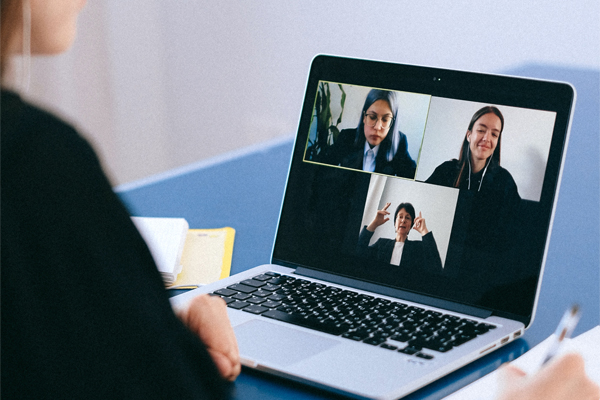A new survey from remote team building company Wildgoose has revealed that staff morale and mental health is being significantly impacted as a result of the lack of ‘microbreaks’ and decreased social contact with colleagues. The Working from home study of 133 companies throughout the UK, reveals that microbreaks have decreased for the majority of employees while home working, as the lockdown sees staff glued to their desks more than ever before. The study highlights the need for companies to do more to support their remote workforce .
One of the main findings was that a whopping 95% employees have been neglecting to take sufficient microbreaks when working from home. Around 47% of the working population have not been taking the health and safety recommended break from the desk every hour, 50% have failed to take breaks for physical activity or stretching, and a large portion of UK employees (61%) feel they have lost social aspects of work and the mental benefits that accompany them. In fact, almost half (47%) stated that they felt their mental health was being affected when working from home.

MICROBREAK BENEFITS
According to Karen Kwong, Director of Ren Consulting, an organisational psychologist and wellbeing coach, microbreaks lasting just a few minutes are linked to wellbeing, productivity, good company morale and a happier working environment. “Even without the lockdown, employees are encouraged to take microbreaks. These are good for their mental health as well as for their physical health. If you look at the biggest problems with desk working such as prolonged sitting and staring at a screen, this can harm the body in areas such as the spine or eyesight,” stated Kwong. “People are encouraged to take breaks away from those postures and to stretch one’s back and do eye exercises away from the screen for at least 5 -10 mins at a time, hourly, depending on the source of the advice.”
She believes “water cooler conversations when at the office” have usually provided more opportunities for frequent breaks, which have a “positive impact on wellbeing and productivity, because humans at their basic level are social creatures, even the most introverted of us”. It actually gives us energy to socialise, even in small doses. “Through casual conversations, sharing stories, or chatting about a piece of work will enhance your thinking and give you some ideas on how to improve your current project,” explained Kwong. “This will bring about increased motivation, engagement and build and enhance working relationships. These all contribute to wellbeing and productivity at work.”
IMPROVEMENT AREAS
Having frequent microbreaks and regular interactions with others, help to “build micro communities and this is what helps individuals thrive,” Kwong added. So what can organisations and managers do to help staff incorporate more ‘water cooler’ moments and microbreaks while working from home? According to the employees surveyed, the biggest areas for improvement are:
- Lack of social contact with workmates (56%).
- Not seeing workmates face-to-face (52%).
- Not protecting employee mental health (47%).
- Uncomfortable and impractical desks and equipment (45%).
- Working excessive hours (36%).
In addition, the study reveals that 28% of remote staff would like more contact with their manager and team. With distance separating colleagues, extra effort has to be made to keep communication regular and two-way. However, 26% said they would actually prefer “less contact as they feel they are being checked in on too much”.
Nevertheless, the survey also demonstrates that 74% of staff that they would be happy to continue working from home after the lockdown has finished. More staff employed by SMEs (89%) want to continue to work from home, compared to 69% working at companies of over 1,000 employees.

KEEPING UP MORALE
“Remote working has presented challenges for companies of all sizes, and morale is right up there with the biggest of them. When you take away tea breaks and office chats, teams can struggle to stay motivated at a distance, which makes regular team building exercises more important than they’ve ever been,” stated Wildgoose Managing Director, Jonny Edser. “We’ve adapted our offering to help companies with remote workforces by looking at what most engages people about team building – social interaction, that sense of collaboration and staying connected with colleagues. They’ve seen a fantastic response, and we expect this trend to continue growing.”
Having identified that the biggest issues faced by home working employees revolve around social interaction, Wildgoose have produced four new remote team building products to help connect employees who are spread across the UK, such as The Daily Kick-Off, The Team Quiz, The Virtual Away day and The Virtual Escape Room.
Click here for more information and a copy of the report.





































